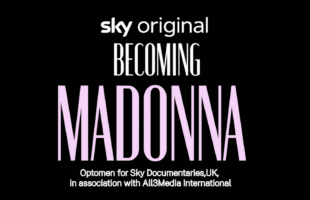Telekom Malaysia (TM), Maxis, YTL, ABN and several other niche players have either launched new services or have them in the pipeline. As is happening around the world, the Malaysia TV market suddenly looks crowded but interesting.
Early entry: All the players have launched commercially, but Astro, Media Prima, TM and Maxis are best placed if they can leverage their existing customer bases.
Many devices: Astro’s B.yond and the new 1Malaysia TV service are available on smart phones/ tablets and Media Prima’s Ton Ton service is accessed via PCs/ tablets. However Maxis and Telekom should be able to integrate their services into their device portfolios relatively quickly.
Broad content offering: Astro has the exclusive rights to the EPL and most Hollywood blockbusters but there is also strong demand for vernacular content. As “true” media companies, Media Prima and Astro should be best placed, but will their teams be given the freedom to develop compelling services?
Deep pockets for product innovations and marketing: The incumbents (Astro, Media Prima and Telekom Malaysia) certainly look strongest: • Astro’s recently-launched satellite pay- TV service, Njoi, is targeted at entry level customers • Media Prima’s Ton Ton service is popular with online viewers, and now Ton Ton is trying to see if customers will be willing to pay for some of its choice content • TM has introduced My1content which is a content marketplace that brings content sellers and content buyers together. The content can be videos (e.g. drama, education, documentary, games or apps). Unlike Astro and Media Prima, TM does not produce content but this marketplace idea is a great way to attract the numerous smaller vernacular content producers to showcase their content and for buyers to search them out. In this way, TM creates a niche market for itself and differentiates from Astro and Media Prima
Real world synergies: Astro still looks to be best placed by far. However, the involvement of Ananda Krishna’s Fetch TV in developing Maxis’ TV platform suggests that Malaysia’s leading media entrepreneur is looking to promote multiple offering from Astro and Maxis covering both premium pay-TV and “pay-lite” services.
Customer-focused services: Finally, the future of media will revolve around greater customer choice, participation and engagement, bringing viewers personalisation, targeted recommendations, active peer reviews and input from their social communities. Who will innovate fastest and best? Players need to “fail fast” as they see what works and what does not. Ultimately, the winners will listen to their customers and respond quickly to meet their needs before the competition.
It is hard to pick winners in today’s Malaysian market, but the battle lines are already being drawn. The established players (Astro, Media Prima, TM) are best placed, but only if they get the funding and management support they require. One thing is for sure – the Malaysian consumer will benefit from increased choice of services over different screens (big and small) at different price levels. And if it works out in this way, some of the credit should go to the Malaysian government for opening up the market to competition.
MAJOR PLAYERS
Free-to-Air: Media Prima Berhad (Media Prima) is an integrated media investment group. It currently owns 100 percent equity interest in free-to-air commercial stations TV3, 8TV, ntv7 and TV9.
Pay-TV: Astro is the first free satellite TV broadcaster in Malaysia. It broadcasts and produces Malay, Chinese, Indian and English language content. It owns and operates the only direct-to-home satellite TV service, with access to 14 million viewers in over 2.93 million homes, representing 49% of TV homes in Malaysia. It offers over 125 TV channels, including 8 HD channels and 32 Astro-branded channels. Astro also offers High Definition (HD) broadcast in Malaysia through Astro B.yond.
Multi-platform delivery: In December 2011, Prime Minister Najib Tun Razak announced that the government will collaborate with Astro to provide free satellite television to customers. The product, Njoi, was launched on 18 February 2012. Njoi gives consumers in Malaysia access to quality education, information and entertainment including sports and music on 18 TV and 19 radio channels with no monthly subscription.
In the same month, 1Malaysia TV, the first concept TV via the Internet, was launched. It currently provides free-to-air channels (RTM1, RTM2, TV3, and Al-Hijrah), China Central TV News (CCTV1), My Youth TV (MyTV), a Korean entertainment channel (eKorea TV) and Documentary Television for free viewing online, or by using 1Malaysia TV’s app for smartphones and Android devices. The service is owned and operated by a private local company, 1Media IPTV Sdn. Bhd.
National Broadband Network: Telekom Malaysia, an incumbent in broadband services, launched IPTV in Malaysia in 2010. According to Informa Telecoms & Media, the High Speed Broadband (HSBB) network being built by Telekom Malaysia is outpacing other networks in the region, including Singapore, Australia and New Zealand. The HSBB – a 70/30 joint-venture between Telekom Malaysia and the government – had 310,000 subscribers by May 2012 and had passed over 1.2 million premises in the country. While the infrastructure is ready, Informa addressed the growing concern of availability of good content, many of which are locked up in exclusive deals with pay-TV giant Astro.
In April 2011, a year after Telekom Malaysia’s IPTV service, Pay-TV operator Astro also launched its own IPTV service, B.yond. This was carried out in collaboration with broadband service provider Time dotCom (TdC).









